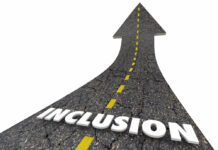A recent study published in the Community Mental Health Journal discovered that peer specialists (PS) working with transition-age youth have diverse roles. These roles include providing emotional support, organizing group activities, conducting community outreach, and handling administrative tasks, among other responsibilities.
Christopher Magana from the University of California San Diego led the research and found that the diverse nature of the responsibilities of peer specialists requires them to receive extensive supervision, training, and support. This will help them to be successful in their roles. The study’s authors emphasize the need for proper guidance and support to ensure that peer specialists can serve the transition-age youth effectively.
“Several managers identified flexibility as an important characteristic of successful PS, particularly because clients’ needs may differ over time and may vary across clients. However, role ambiguity may be experienced by the PS or their colleagues. Thus, a greater breadth and depth of supervision, support, and training may be needed to ensure that PS have the resources needed to be successful.”
 Peer specialists are mental health workers who have lived experience of mental illness. Although the use of peer specialists has expanded considerably in recent years, there is little research on the training and supervision these specialists receive to prepare them for their roles in various mental health settings. The goal of the current study was to explore how program managers prepare peer specialists to work with transition-age youth (people between the ages of 16 and 24).
Peer specialists are mental health workers who have lived experience of mental illness. Although the use of peer specialists has expanded considerably in recent years, there is little research on the training and supervision these specialists receive to prepare them for their roles in various mental health settings. The goal of the current study was to explore how program managers prepare peer specialists to work with transition-age youth (people between the ages of 16 and 24).
To accomplish this goal, the researchers recruited 11 program managers from San Diego and Las Angeles counties to participate in open-ended interviews. To be eligible for inclusion in the current study, the program managers had to head facilities that served 100 or more transition-age youth clients. These facilities also had to serve Black and Latino clients while employing three or more paid peer specialists. Interview questions asked about program manager perspectives on peer specialists’ roles, training needs, and organizational strategies for supporting peer specialists’ professional development. The interviews lasted between 60 and 90 minutes.
The authors organized themes in the interview data around four areas of inquiry: Peer specialists’ characteristics, roles/services provided by peer specialists, management’s support towards peer specialists’ responsibilities to the organization, and management’s support towards peer specialists’ responsibilities to the clients.
Program managers reported several characteristics that made peer specialists effective in their roles. According to management, peer specialists successfully building connections with clients depended on three factors: the lived experience of the peer specialist, the authentic/friendly/communicative personality of the peer specialist, and an empathetic/non-judgmental approach.
Managers also noted that compatibility in demographic traits and interests could make stronger connections between clients and peer specialists. This included being close in age and sharing special interests, as well as sharing race/ethnicity, language, and culture with the clients. Managers pointed to the organic, often less structured nature of the peer specialist/client relationship as fostering connection. This included peer specialists working in diverse settings depending on client needs and a more organic, less formal relationship that peer specialists often shared with clients.
Program managers reported varied roles and services provided by peer specialists. The roles of peer specialists encompass all stages of service utilization. This was exemplified in the current work through peer specialists conducting outreach to engage young people in recovery services and using their experience to make clients more comfortable seeking and maintaining service use. Peer specialists helped to address clients’ basic needs, such as assisting with finding transportation and adequate housing. Peer specialists also had the role of modeling recovery and independent living as well as leading social activities for clients.
The authors identified two themes around management support for peer specialists’ organizational responsibilities. First, managers noted that peer specialists could benefit from time management training and reviewing documentation practices. Second, managers also said supporting peer specialists in their relationships with their colleagues was essential. One example of this was scheduling staff meetings so that peer specialists could attend. This allowed for increased socialization and collaboration between peer specialists and other mental health staff.
Managers spoke about many ways they supported peer specialists in their responsibilities towards clients. As a result of their varied roles and responsibilities, peer specialists could benefit from many different training programs, including mental health training around approaches like cognitive behavioral therapy/trauma-informed care, training in cultural competency for minority groups most served by the program, and training for appropriate self-disclosure.
Managers also highlighted cultural competency around LGBTQ communities as crucial for peer specialists. Supervision was also mentioned as necessary for supporting peer specialists in their roles. This took the form of both individual meetings, where peer support specialists could get feedback on their work, as well as group meetings, where they could address things like safety concerns and caseloads.
The authors acknowledge several limitations to the current study. They explored management’s perception of peer specialists. The authors note that data was collected directly from peer specialists as well, but due to the extensive nature of the research, these findings will be published in a second article. The reliance on semi-structured interviews means the data was based on the participant’s recall of information. This kind of data is prone to recall bias. The onset of the COVID-19 pandemic limited the engagement of researchers with the participants. No demographic data was collected from participants. Data was collected from 2 urban communities in southern California, significantly limiting generalizability to other populations. The authors conclude:
“Findings demonstrate that program managers appreciate and understand the value of peer support within mental health services that seek to engage diverse TAY clients, as well as the complexity of the PS role. Consequently, managers responded with varied strategies to support PS so that they may be personally and professionally successful. Results from this study may inform the field on how to improve the implementation and sustainment of high-quality peer support while also providing insight regarding the long-term development of PS and protocols to support them and their careers.”
Previous research has explored challenges that peer support specialists face, including unclear roles and professional development. Similar research cited organizational culture and training as tremendously influential in the work of peer specialists.
One study found that working as a peer support specialist can improve insight and resilience. Another author has asserted that while working as a peer support specialist can be transformative, it can also be exploitative.
****
Magana, C., Gilmer, T. P., Munson, M. R., Jones, N., Burgos, J. L., Ojeda, V. D. (2023). Programmatic Support for Peer Specialists that Serve Transition Age Youth Living with Serious Mental Illness: Perspectives of Program Managers from Two Southern California Counties. Community Mental Health Journal, 59, 1498–1507. (Link)















Do peer support experts have insurance as a means to protect the public? Having mental health issues does not grant someone a license to practice, so the entire concept appears to be another creation of innocent therapists, wounded healers, and the alchemists of the past. How long can someone claim “lived experience”?
What is my solution? I am more aligned with Wilfred Bion in his remarkable ideas about group therapy, where both equality and power structures can be observed and internalized as needed. There is one person who is not directly involved in the process but administratively maintains the house rules and who is insured and regulated professionally. While the peer support ideas sound good in theory, they often fall short in practice. If a person earning a high income (psychiatrist)can abuse you, what makes you think someone paid in fractions will not do the same? It’s a somewhat fantastical idea, and I no longer believe it’s a viable solution to the problem at hand.
Bion had background in the army and was way ahead of his time in what we are struggling in today’s issues. However, he knows that groups work better than peer support or individual therapy. What most people, especially in our Western mindset culture, are against in group therapy is fear of shame feelings (others observing us in such vulnerable states). Shame is internalized in the individual, not in the collective, but one can never truly recover from mental illness without confronting and working through shame. Shame is an emotion that serves as an alert system for change, so what is better than addressing it and then addressing grief? We give shame feeling a bad rap because that is exactly how we keep people locked in mental illness and not change. No one ever changes unless feeling shame – shame is the motion to change! That is why it is painful! And group therapy expediates this feeling to the foreground to make space for grief!
Report comment
“While the peer support ideas sound good in theory, they often fall short in practice.” Really? is there scientific or empirical evidence to that TALL claim?.
“…but one can never truly recover from mental illness without confronting and working through shame.” Is that scientifically or even empirically based?.
And as far as I know, shame, even guilt, are the drivers of “depression”, not of, uuuhhh!, psychosis.
I am still waiting for the Mona Lisa to ravage me, and I am not ashamed by that. If it happened, I’d feel more blue than locomia. She might never visit again…
And to try to take the gloom out of it:
Recovery is a concept more akin to salvaging the cargo sunk of an old athenian ship, not of human beings peddled pseudoscientific badly empirically tested claims, that oppress more the ones we are to care more for: the younglings…
Report comment
My only issues with peer support from my limited experience with it were 1) It reinforces the segregation of “mentally ill” and “mentally healthy” people; as if mentally ill folk are fundamentally different. It should be more like a network for cancer survivors 2) It is disingenuous when led and directed by behavioral health departments; community groups must be built and led by their community, otherwise they fall victim to being useless PR tools with no independent voice or ability to advocate for themselves 3) Within these “peers” there is a wide spectrum of disorders and some do not care for the others; bipolar for example will often still be stigmatized and segregated by folks with say addiction or anxiety labels who see their experiences differently. To be more effective having groups dedicated to certain particular diagnoses/experiences, who are less judgemental and committed to true community, would be better.
Report comment